Most people are familiar with “Pirates of the Caribbean,” and if you’ve visited the Magic Kingdom or Disneyland, you probably rode the namesake ride. If not, here’s a short summary: A boxy boat, drops down a small waterfall, into the pirates’ world, then meanders through a nighttime setting in which animatronic buccaneers can be seen doing what they do best: fighting, raiding, and plundering, often to a music bed of “A Pirate’s Life for Me.”
While all of the featured pirate behavior is bad, Disney has finally decided to strike an especially offensive part of the attraction: the auction of women. Just past the ride’s midpoint, one prominent pirate, “Red Beard,” stands over a line-up of nicely-dressed women at the Mercado, where a large banner reads “Auction: Take a Wench for a Bride.” He tells one of the women to “shift” her “cargo” so buyers can get a better view of her backside, and he makes a crude comment about purchasing by the pound.
As a flute plays a jolly version of the theme music and nearby chickens cluck, some of the women being bartered don’t seem particularly upset about their dire predicament. In fact, the lady atop the auction block at the time appears kind of excited to be sold. The segment lasts for just 30 seconds, and most onlookers chuckle as the boat cruises under a bridge and into the next part of the attraction.
Disney has done with the Pirates ride what it’s adeptly done for decades: presented a sanitized, family-friendly version of a harsher reality, which is not necessarily a bad thing. For instance, recall some classic Disney movies: No parents wanted their five-year-old to watch Nemo’s mother actually get eaten by a barracuda, or to see Simba’s father bruised and bloodied after being stampeded. In fact, when you think of what real pirates actually have done to their victims and their property, the whole Pirates of the Caribbean franchise represents a very sterilized version of reality.
It’s not that surprising, therefore, that Disney decided to do even more clean-up of the ride and remove the women’s auction entirely. When announcing the change in its Parks blog on June 29, the company downplayed the removal and rather focused on what it was adding to the ride: new characters and a fresh scene featuring pirates selling their stolen goods. Despite the positive spin, social media erupted like the Black Pearl in battle, with many readers blasting the change, for instance:
“Please don’t do this. It would break my heart. I was already hurt when you added Disney film characters to It’s a Small World and honestly wasn’t too keen on the first update to Pirates adding Capt. Jack Sparrow (although I love Johnny Depp). Is nothing sacred?”
“So disappointed you will be changing the pirates ride at Disneyland. I’ve always been fond of that ride, it’s a Disneyland Icon & should stay as is.”
“No!!!! Please do not do this!! It’s awesome the way it is and is a classic ride!”
Of course, some people have difficulty dealing with change of any kind, even when it’s for the better, and such transitions are even harder to handle when they upend a long history. The Pirates ride has shuttled Disney visitors through the same basic story for fifty years.
However, many other critics of the change have a broader axe to grind. They’re tired of what they believe has become an ever-increasing onslaught of political correctness, feeling that no matter how accurate something may be, you can’t say or show anything that might cause someone to be offended, for example, other readers responded:
“Please don’t keep changing the theme of the ride to make it more politically correct. Some have said it’s not alright for children to think it’s ok for auctioning the women. These are important conversations to have, being a pirate is not ok! This is a way to have conversation with children.”
“Where does the PC police stop? The ride depicts drunkenness, theft, murder, and arson. That’s what pirates did.”
“Please don’t let a handful of people who can’t separate a ride from reality subtract from this iconic ride, one of the last Walt Disney worked on.”
Does all of this negative feedback mean that Disney’s alteration of the attraction is a big marketing mistake? No. One reason is that it’s hard to imagine that many people, if any, will refuse to go on the ride because it doesn’t have the auction of women scene. In fact, the publicity the change has generated will probably stir additional interest in the ride and attendance at the attraction.
A more important reason that Disney Parks are unlikely to suffer is that the motive behind the change seems pure. Human trafficking is much more than a societal blemish from centuries gone by. It’s a significant modern day problem that’s bigger than most of us would imagine, for instance:
- Human trafficking is estimated to be a $32 billion-a-year industry in the U.S., that is on the rise in all fifty states.
- As of 2012, there were 20.9 million victims of trafficking world-wide; 1.5 million of those victims were in the U.S.
- Human trafficking has surpassed the illegal sales of arms and is expected to surpass illegal drug sales within a few years.
So, even as you read this blog, tens of millions of people around the world are being held against their will, forced to work in sex trade and sweatshops, among other forms of enslavement. Given that global reality, it’s in poor taste to present human trafficking as part of an amusement ride that makes light of its very serious consequences.
There are those who understand the gravity of trafficking, yet they want the Pirates ride to stay the same because they believe the auction can serve as a springboard for discussion, as one of the comments above suggested. Another person shared a similar reaction to Disney’s announcement:
“Yes, selling women into slavery was and is horrible. Let’s not hide it from public view. Let’s depict life as it was so that we can have a discussion about how it should be.”
Again, however, the ride portrays human trafficking in a humorous way, which sends the wrong message and serves as a bad starting point for any serious discussion. Plus, how many families have finished the Pirates ride, when the parents pulled their children aside to say, “Now let’s analyze what we just saw and understand the true evils of human trafficking”? If there are such parents, I’d love to learn from them!
So, to summarize, Disney has made the right decision to remove the auction of women from its Pirates ride. The bigger issue that remains is whether the Pirates of the Caribbean franchise on whole is both effective and ethical, but that question will have to wait for a future blog post. In the meantime, we can credit Disney for making a sensible switch and for executing “Mindful Marketing.”
Learn more about the Mindful Matrix and Mindful Meter.
Check out Mindful Marketing Ads and Vote your Mind!

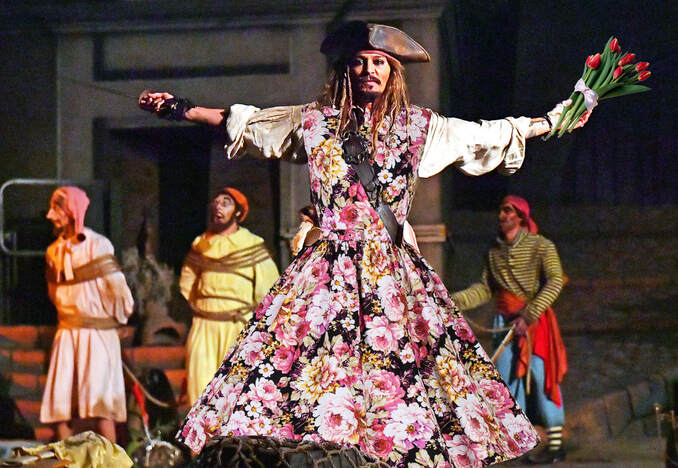
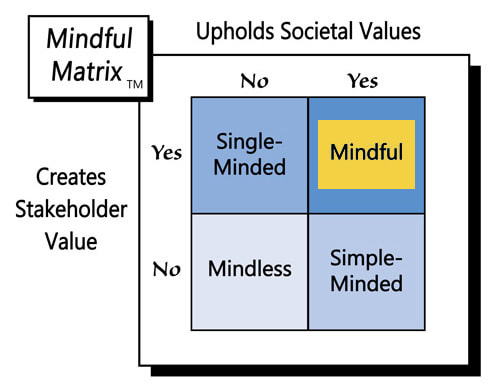
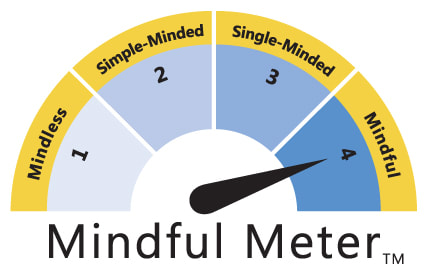
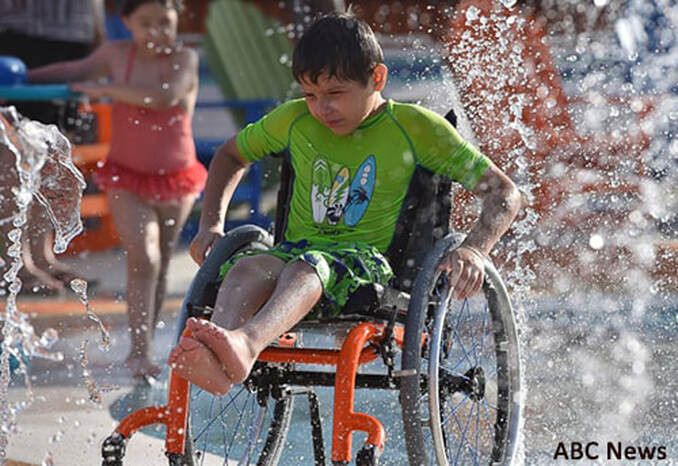
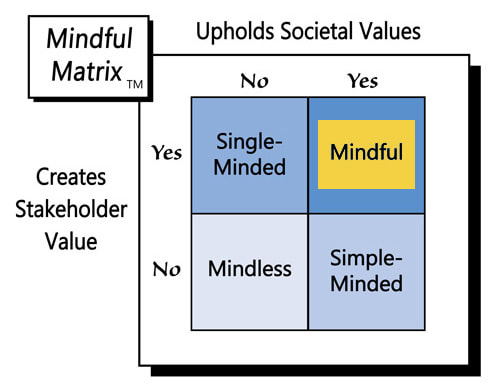
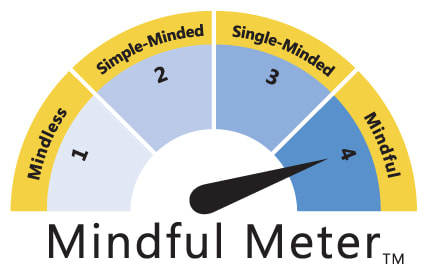
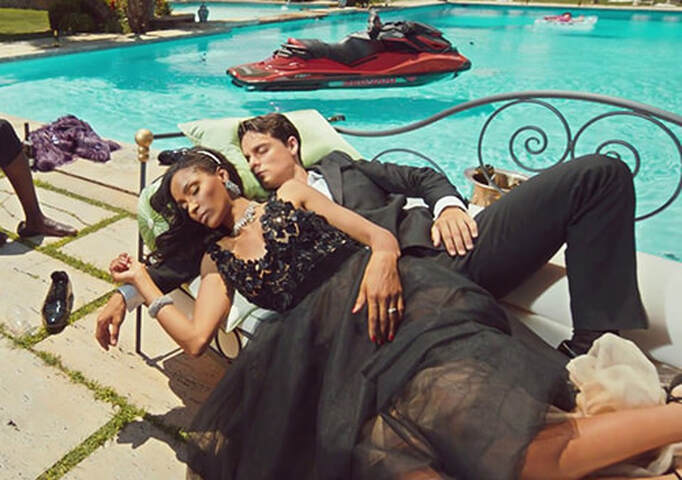
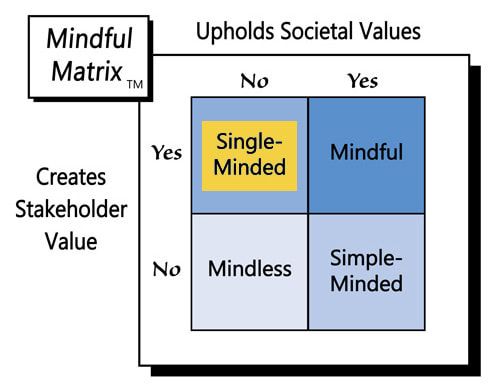
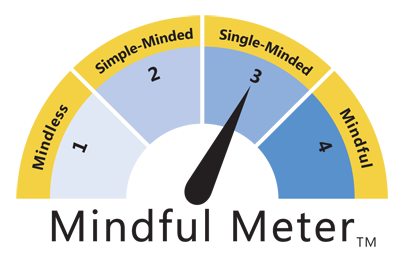

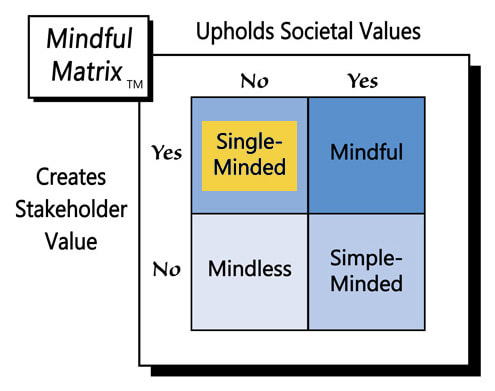
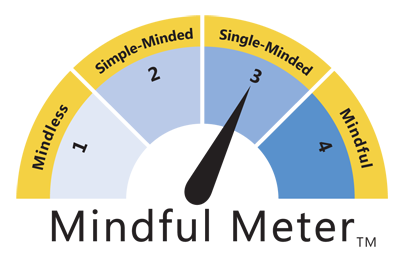
 RSS Feed
RSS Feed